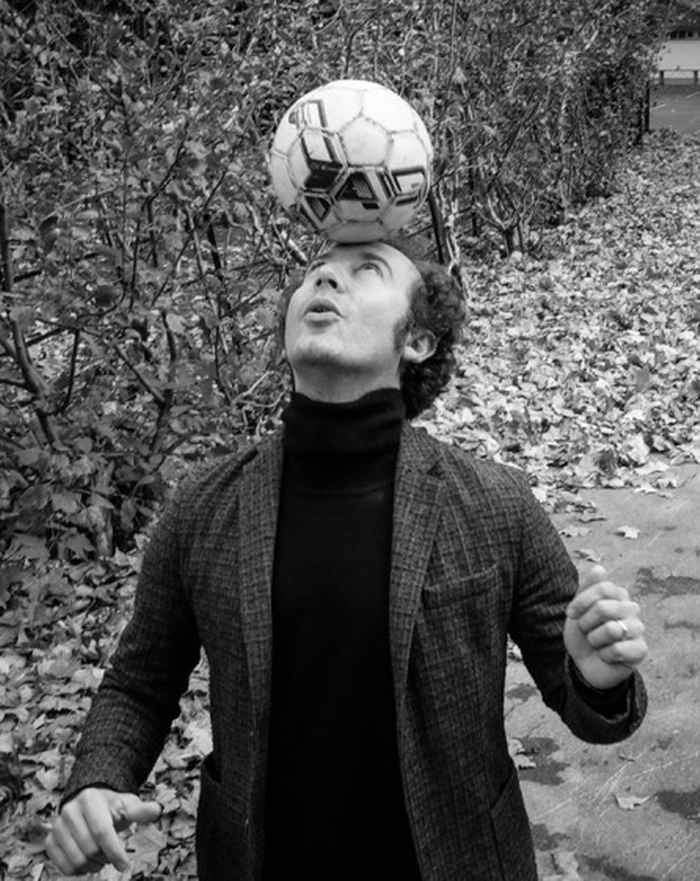Combining Sociology, Philosophy, and Phonetics to Develop a Social Understanding of Football Analytics
Blog by Alumni Fellow Gianmarco Campagnolo
25 November 2024

The fact that different research groups from the University of Amsterdam relocate for a day of the week to IAS meant every day at the communal lunch I could meet different academic colleagues and discuss their diverse research interests. Also, the events taking place at IAS are open to Fellows, creating occasions for serendipitous encounters with new concepts from different disciplines. I am a sociologist of science by training and my current research deals with IA in sport.
At IAS, I had the opportunity to connect with notions that I would not have met within my discipline. For example, by attending a philosophy of science event at IAS, I came across the interesting work of Emily Sullivan on the understandability of black-boxed algorithms. Similarly serendipitous was the occasion to learn Hasok Chang’s notion of epistemic iterations as I walked across the ground floor common room where other Fellows were having a conversation on the notion of measurement.
These opportunities for cross-disciplinary dialogue are unique to the IAS environment. The central, elegant and welcoming IAS building with views on the canal, the kindness of IAS staff and the beauty of the city of Amsterdam with its parks, canals and bike lanes together made these intellectual encounters even more unique.
Another important factor is the ease with which IAS Fellows can collaborate with the wider Dutch research ecosystem. For someone working long distances between Edinburgh and London, the proximity of university buildings in central Amsterdam and the ease and affordability of transport outside of it meant colleagues at any of the many Dutch Universities, no matter which department, felt extremely easy to reach. Their open, curiosity-driven approach to collaboration also contributed to a sense of approachability, especially when compared with the grant-driven outlook more common in the UK context or research partnerships.
As an example of this collaborative environment, in only four months and without prior planning I ended up joining forces with the Digital Methods Initiative organised by Richard Rogers and with Dirk J. Vet of the Speech Labs of the University of Amsterdam, Phonetic Sciences in a project that analysed the phonetic features of sport live commentary to determine which team evoked the loudest commentary.
In such a short time we were able to discover that the team league 'loudest commentary' table was closer to the real team league results than the table based on statistics predictions. By demonstrating that the knowledge contained in media representations of sport is as good at analysing the game as the fledgling coding expertise underpinning data vendors’ products, this impromptu project made a fundamental contribution to the multi-modal epistemology topic of my fellowship.
To conclude, a special mention the remarkable coincidence that the main conference of my discipline - the Society for the Social Study of Science (4S) - happened to take place in Amsterdam during the time of my fellowship, organised by Vrije University. The 3,000 people closing party of the conference of at the Amsterdamse Bos by the canal proved a memorable finale to my fellowship! I believe its position at the core of the highly connected Dutch research ecosystem makes IAS a great place for researchers to extend their outreach in the continent.